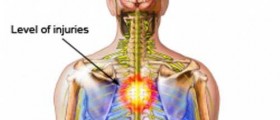
Potassium is a mineral necessary for the function of all living cells. It carries different functions in various living organisms. In animals, including humans, sodium and potassium are essential to generate electrical potentials in the cells, especially in the nervous tissue. Therefore, reduction of potassium in humans often results in various neurological dysfunctions. Normal serum potassium levels are between 3.5 to 5.0 mEq/L and everything that falls under this measurement can be considered a state of low concentration of potassium in the blood. This condition is also known as Hypokalemia or hypopotassemia, and presents a serious health concern since it endangers many body functions, including muscle and nerve activity.
Causes of potassium deficiency
In very rare cases, potassium deficiency occurs as a result of insufficient consumption of potassium. In most of the cases, the potassium is lost from the body due to some gastrointestinal or urinary complications. Gastrointestinal loss occurs because of diarrhea, vomiting, extreme perspiration or loss of blood. Urinary loss includes side effects of different diuretics, with diabetic ketoacidosis, low levels of magnesium, various tumors, or rare hereditary disorder such as Bartter syndrome or Gitelman syndrome. Magnesium is a mineral necessary for the procession of potassium. Sometimes, the potassium deficiency can occur only because the body lacks magnesium, and therefore, lacks the ability to process potassium.
Potassium deficiency and heart problems
Even in the cases of mild potassium deficiency, cardio-vascular problems may be present. In most of the cases, patients will not have any symptoms at all except the small elevation of blood pressure. The heartbeats may also be irregular. Moderate potassium deficiency is characterized by serum potassium concentrations of 2.5-3 mEq/L, and it often includes muscular weakness, muscular cramps, constipation and myalgia, or muscular pain. Since the human heart is a muscle, it is greatly affected by such a severe loss of potassium. The most severe cases of hypokalemia include flaccid paralysis and hyporeflexia. The first is a weakness or paralysis and reduced muscle tone without other obvious cause, while hyporeflexia can be described as a condition of below normal or absent reflexes. The arrhythmias and muscular problems associated with hypokalemia are most severe in the cases of very low potassium levels in the blood. A blockage in the heart muscle can easily become a complete heart block resulting in a heart attack. Heart attack occurs when blood vessels that supply blood to the heart are blocked, so that the heart muscle becomes seriously damaged or even dies. Interruption of the heartbeat due to the abnormal heart rhythm can sometimes be life threatening since the heart normally pumps blood to the lungs, brain and other organs.

















Your thoughts on this
Loading...